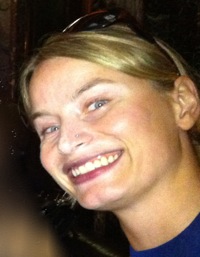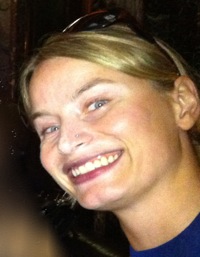Recently, I attended a conference in Melbourne – the International Low Back Pain Forum for Research in Primary Care. This conference is organised by researchers who are interested in low back pain epidemiological research in – can you guess it? – primary care. Now the cool thing about this conference is that it has no big corporate or industry sponsors. It is just a bunch of researchers and clinicians who like to get together and chat about low back pain and discuss new ideas that excite them. I’m making this sound incredibly informal – there are proper presentations and workshops of course – but it is an amazing conference to sit down with the big-wigs of back pain research and get to express your opinion. And as a recently minted postdoctoral researcher, I found this opportunity amazing.
I would love to talk more in depth about a lot of the talks that were given, but because most of these studies aren’t yet published, I have to hold off. What I do want to talk about is an amazing presentation that was given about social media. Now here at BIM we are quite spoiled by Heidi Allen’s prowess with all things media, but as a researcher, I found this presentation fascinating. The social media presentation was by Mr Ray Moynihan, a freelance health journalist who is affiliated with the University of Newcastle, Australia. He started the presentation by introducing a new syndrome: Motivational deficiency disorder (MDD). Now he informed us that this disorder has been known by other names: lazy, slothful, indolent, and the list goes on. But low and behold – these terms are vastly incorrect as these people were actually suffering from MDD! He then presented a mini-doco on this new syndrome that had interviews with doctors and patients as well as the most recent ‘scientific discoveries’ in MDD. While hilarious, there was a serious note. What he artfully did was to convey the need to get our research, and thus our message, out there. If he could create interest and relevancy to a completely fictitious condition, think what a team of researcher + health journalist could do for a real condition.
For me this was a really key take-home message from the conference. As researchers, I reckon we do a pretty poor job of getting our research out to the general public. Now before the tomato throwing starts let me explain. Many times we’ve decided to not promote a certain paper because its’ findings aren’t sexy enough. Also, I personally get nervous as occasionally media coverage of research is a bit like a game of telephone gone wrong where the end message is nothing like the start message. Or maybe, after writing grants, writing papers, doing admin tasks, and supervising students, we just don’t have the time. However, finding a good health journalist and establishing a mutually beneficial relationship appears to be key in overcoming some of these barriers. Sometimes if we have our researcher hat on, we may not see a study’s findings as newsworthy and may be nervous of the whole process. However, if we had a journalist hat or heck, an actual journalist on board, we may find otherwise.
Have any of you had the opportunity to work with a journalist? I’d be interested to hear about your experience (good or bad)!
Tasha Stanton
 Tasha is a Canadian living in Australia, who consistently disappoints people at conferences when she speaks and doesn’t have a hint of a ‘Strayan accent. She was originally trained as a Physiotherapist at the University of Alberta, Canada and then apparently couldn’t get enough of school so she completed a Master’s degree studying spinal biomechanics. She then decided that she liked beaches more than 4 feet of snow and moved to Australia to complete her PhD at The George Institute for Global Health. Luckily she is able to use the advanced skills attained during her PhD to expertly wash Prof Chris Maher’s car.
Tasha is a Canadian living in Australia, who consistently disappoints people at conferences when she speaks and doesn’t have a hint of a ‘Strayan accent. She was originally trained as a Physiotherapist at the University of Alberta, Canada and then apparently couldn’t get enough of school so she completed a Master’s degree studying spinal biomechanics. She then decided that she liked beaches more than 4 feet of snow and moved to Australia to complete her PhD at The George Institute for Global Health. Luckily she is able to use the advanced skills attained during her PhD to expertly wash Prof Chris Maher’s car.



